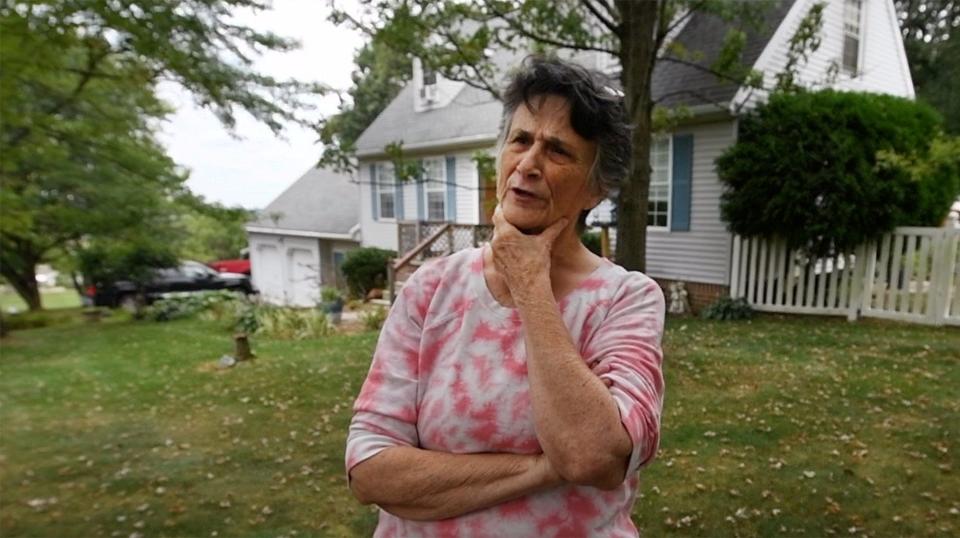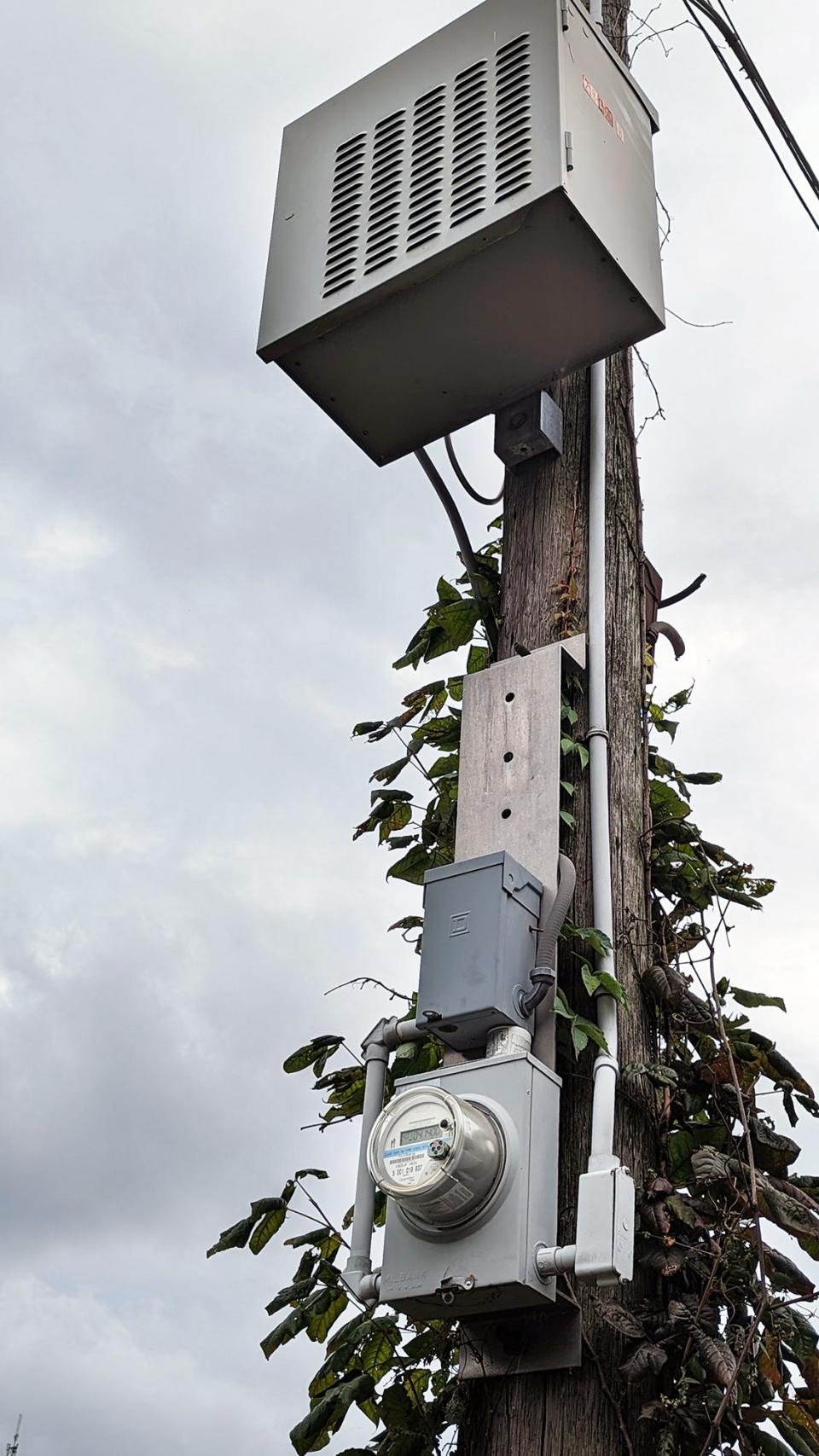Customer service hell: Couple charged for cable company's electric bill. For 22 years.
Elaine and Frank Nied moved to the Cape Cod-style house on Church Road in North Hopewell Township, just south of Winterstown, in 2001.
They relocated to southern York County from Perkiomenville, a Montgomery County town north of Philadelphia, because it would be more convenient for Frank. He worked for a Finnish paper company, and it imported much of its merchandise to the U.S. through the Port of Baltimore. Since Frank’s work often took him to the port, southern York County was a much shorter drive.

It was intended to simplify their lives, make things easier.
It didn’t, at least in one respect.
It started shortly before they moved into their new home. Elaine called Met-Ed to change over the electrical service to their house. Met-Ed informed her there were two electric meters at their address. She said, as far as she knew, there was only one meter on the back of the house. She hadn’t seen a second meter.
The Met-Ed representative asked whether they had added a garage or addition to the house and Elaine said the previous owners had built an attached garage with some living space above it in 1998. The second meter, she was told, was for that addition, and she was charged $12.50 for each meter.
She still hadn’t seen a second meter and wasn’t told where it was. The month after they moved into the house ― this was before smart meters had been installed ― a meter reader knocked on her door and asked where the second meter was located. Elaine told him she didn’t know. He looked around and, not long after, returned and said he found the second meter on a pole about 150 feet from her house. It seemed odd to her. It was on the opposite side of the house from the garage and wasn’t even on their property.

Still, she took his word for it.
And that began a 22-year struggle to find out why the Nieds were paying about $850 a year for electrical service that was powering something other than their home.
“I never heard anything like it,” Elaine said in a slight Tennessee drawl that reflected her Southern roots. “Neither had anyone else I told about it.”
No one has because it’s not at all routine. Property owners may install separate meters if their home contains an apartment, and the tenant pays the electrical bill, or if someone has a business that requires separate electrical service. But having two meters serving a single-occupancy home is rare, if not unique.
And the Nieds’ experience with trying to straighten it out reflects the frustration that, at times, all of us experience when trying to deal with customer service departments of large corporations.
As Elaine put it, “It’s just been a mess.”
'The bill just got higher'
Elaine noticed that something was weird about 10 years ago. Frank had used the two rooms over the garage for a home office, but even though he often worked at the port in Baltimore or traveled for work, the bill seemed to remain constant, remaining between $65 and $100 a month depending on the weather.
When Frank retired in 2013 and stopped using the office, shutting off the air conditioning to that section of the house, Elaine said, “the bill just got higher.”
She called Met-Ed numerous times over the years, asking why the bill was so high when they had not been using the rooms and had cut back on electrical use in them. Each time, she said, she was “given the run-around" and told that the meter on the pole was connected to the addition on their house.

In late May or early June this year, she again called Met-Ed and was told to employ an electrician to inspect the meter. The electrician looked at the meter on the pole up the road and told Elaine it wasn’t connected to her house and that it was servicing the cable line. Looking at the meter, you can see a line coming from the electrical service at the top of the pole and another wire from the meter that goes back up the pole and is connected to what appears to be an in-line amplifier on the cable line.
She reported the electrician’s findings to Met-Ed, which, a few days later, dispatched a technician to inspect the meter. From her home, Elaine watched as the technician got out of his truck, looked at the meter and returned to his vehicle. A few moments later, she said, he got out and looked at the meter again and then climbed back into his truck. About 15 or 20 minutes later, he left without speaking to her.
When she called Met-Ed two days later, on June 13, she was told the technician believed the meter belonged to Comcast. More than a month passed and nothing had happened. So, Elaine called Met-Ed on July 18 and “told the whole story” to a customer representative named Jennifer (no last name provided, Elaine said). The representative told Elaine she would turn of the meter off and “see what happens.”
She did, and while Jennifer was still on the phone, Elaine checked every room in the house to see whether they had lost any power. Everything worked. Elaine’s daughter checked the meter, and it was flashing “OFF.”
She called a neighbor to ask whether they had Comcast. They didn’t. A smaller company called Armstrong, headquartered in Butler, provided their internet service.
An hour later, her neighbor called her back and told her that her internet service was down. It turned out that the cable line powered by the meter on the pole belonged to Armstrong, not Comcast.
A few hours later, Elaine said, a technician from Armstrong arrived to check the meter at the pole. She walked over and told the technician the meter had been shut off. He told Elaine that some 200 households reported that internet service was down and he would bypass the system by hooking up a generator, which is what he did.
Elaine told the technician she had been paying for Armstrong’s electricity for more than 20 years at a cost of more than $20,000. He assured her the company “would be able to take care of it.”
The next day, July 19, the meter was back on. When Elaine called Met-Ed, she was told it had been transferred to Armstrong.
Then, she asked about being reimbursed for 22 years of paying for electricity used by Armstrong.
'It just doesn't make sense'
The supervisor assured Elaine she would be reimbursed for the payments she had made on the meter that had nothing to do with her house and told her the company would put the reimbursement on a debit card.
The customer service rep transferred her to a supervisor.
Elaine asked for a check ― the total amount was about $26,000 ― and the supervisor told her the company did not cut checks for reimbursements, no matter the sum.
After that call, she called Armstrong and spoke to someone named Brandon Madison who asked for copies of her Met-Ed bills for the past 10 years. Armstrong acquired the cable service in that part of the county from Clearview Cable in November 2013 ― Comcast played no role in the meter mix-up ― and would not investigate claims from before that date. She provided the bills and didn’t hear back.
On Aug. 18, she called Met-Ed yet again and was told she would be reimbursed just $4,031.43, covering the past four years due to what was described to her as the statute of limitations.
Elaine was frustrated.
“We are not electricians, so we took Met-Ed's word on who the meter belonged to,” she wrote in an email that was the basis of her complaint filed with state Public Utilities Commission. “They lied to us and basically stole from us for 22 years. Even after multiple complaints, they still would not investigate further, and when we were finally taken somewhat seriously, they made it our problem to diagnose.”
Elaine said, “It doesn’t make any sense.”
More by Argento: Vicosa’s captive wracked with guilt she didn’t save 2 girls from their killer cop father
'I was hoping it would be over'
Calls to Armstrong to respond to this article were not returned. A Met-Ed spokesman did not have a ready response to the story.
However, on Aug. 29, Elaine heard from Armstrong. The company would send her a certified letter, saying it would reimburse her for paying its electricity bill dating to 2007. That still would not make her whole for the years she paid that bill.
"I was hoping it would be over," she said. "I want every penny that I paid to be paid back."
This article originally appeared on York Daily Record: York County PA couple paid cable company's electric bill for 22 years

